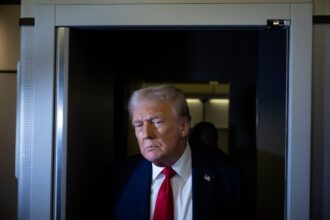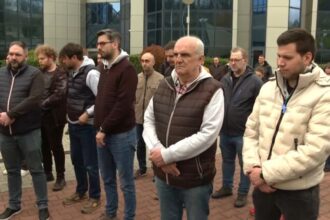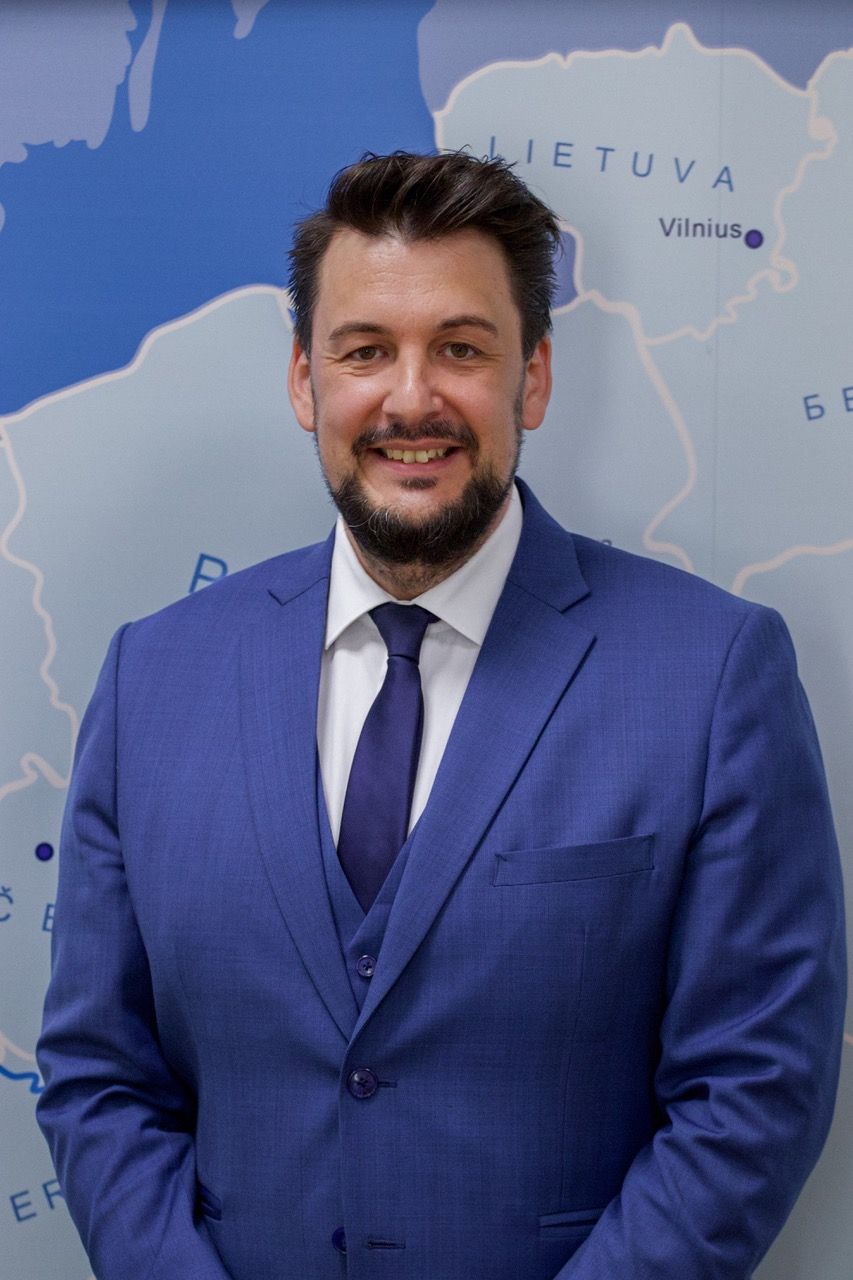On October 20, 2024, the Moldovan President Maia Sandu votes in the 2024 presidential election of Moldova and the referendum on the rapprochement between the European Union. (Pierre Crom/Getty Images)
Moldovans went to the polls to elect the next head of state, and to vote on the future integration of the country into the European Union. The “yes” camp had a slight lead of 50.03% after the results of Monday’s counting.
The strategic political decision by President Maia Sandu to align the referendum for amending the Constitution of Moldova in preparation for its EU membership with the first round presidential election was a wise move. This alignment was approved in the parliament by Sandu’s Party of Action and Solidarity, which holds a comfortable majority.
It is clear that Sandu and PAS are responsible for more progress in Moldova’s EU integration compared to all previous governments, even those who claimed to be pro-European. However, I feel anxiety when it comes to EU and referendums, especially when these seem unnecessary.
If politicians had not asked a simple yes or no question about a complex matter, we could have had a Constitutional Treaty in place of the Treaty of Lisbon. The U.K. would still be a part of the EU.
This approach not only narrows the debate, offering virtually no alternatives among other presidential candidates that also support EU membership, but it also comes with significant risks as past examples have shown.
During the 2016 Moldovan Presidential Election, the Kremlin tried to influence the result through disinformation campaigns. This interference may have happened regardless of the referendum but it opened a new front in the virtual battle that these elections are becoming.
According to reports, up to 150 millions euro ($162.9) were allocated for social media campaign aimed at spreading misinformation, interfering in the elections, and destabilizing a country.
Investigative journalists at Ziarul de Garda also discovered that Ilan Shor, an Israeli-born Moldovan pro Russian oligarch who is a politician, had funded around 15 million euros ($16.3 million), to buy votes directly from his exiled supporters in Russia. This is an incredible amount for a country with only 2.5 million people.
The nervousness of Moscow was palpable in the days before the vote, especially among pro European citizens in Chisinau. Their concerns were validated by the extremely close results with only a small number of people in favor. A negative result would not necessarily stop the EU accession, as the question is only meant to make EU membership a constitutional goal. This change would make future governments more reluctant to deviate, but not impossible.
As mentioned, this approach severely restricted the space for discussion. It was impossible to support the referendum and not also Sandu. The second-placed candidate was from the Party of Socialists which called for a referendum boycott. Their deputies left parliament in March when the PAS majority government endorsed a resolution to continue EU membership efforts.
Voters were forced to make a binary decision based on their perspective, rather than engage in a debate about the challenges, opportunities, and successes of Moldova’s EU Integration, or the achievements and failures under Sandu’s presidency. The only way to counter the pro-Russian propaganda was to denounce it. This included the claim, echoed by many EU member states and governments, that EU membership will ensnare Moldova in the Kremlin’s war against Ukraine.
What could have possibly been discussed was that Ukraine’s Parliament approved a similar constitution change in 2019, which might have increased anxieties for some. Discussions should be held on how Article 42.7, or the mutual-defense clause of the Treaty on European Union, can be interpreted and guaranteed without NATO as a result of a possible EU membership for Ukraine or Moldova.
There are few positive narratives that address the fears and concerns both of EU citizens and Moldovans. It can help put certain things into perspective.
The enlargement would bring us back to where we were. The combined population of the six Western Balkans countries, Ukraine, Moldova and Georgia is approximately 67,000,000 – comparable to that of the U.K. These nine candidate countries only have 10% of the U.K. GDP, but they represent an opportunity to stabilize democracies as in previous rounds of enlargement.
Stability in the neighborhood has historically been a key factor for economic prosperity, both for old and new EU member states. We should stop focusing on the budget alone (which is only 20 billion euro higher than Austria’s, at 142.5 billion euros). It is obvious that not everyone will receive more than what they contribute. The net payer concept, however, is misleading. For example, Germany contributes more to the EU than France, but benefits 67% from the single market integration.
SWP, a German think tank, says that even though the addition of more countries to the EU could complicate decisions, over 60% of votes have been unanimous since 2010, despite the fact that qualified majority voting (QMV), would have sufficed. They have suggested extending QMV, without a treaty review, but that may only be Plan B. Why not be bold, and reintegrate the deepening and broadening?
The complex journey from the Treaty of Nice up to Lisbon, including the negative referendums in 2005 and 2008, took 65 months. The longest successful enlargement negotiation took 77 months on average, and lasted 77 months. The government’s goal of achieving EU membership by 2030 is achievable if all parties are ambitious and determined. A referendum on EU membership is usually held at the end of the process, and not at the start.
There may be more discussion space leading up to the second round presidential elections scheduled for November 3, now that the referendum anxiety has diminished, even if by a small margin. The real “referendum”, however, will be the parliamentary election, which is scheduled to take place at the latest by July 2025. The government, not the president, will determine the direction of Moldova.
There is still hope that Moldova will join the EU.
Editor’s note: The opinions expressed by the authors in the op/ed section do not reflect the views of Kyiv Independent.
Sebastian Schaffer is the Director of the Institute for the Danube Region and Central Europe, a regional think-tank based in Vienna. Schaffer is the secretary general of Danube Rectors’ Conference, a network of more than 60 universities in the Danube region.
Read More @ kyivindependent.com




